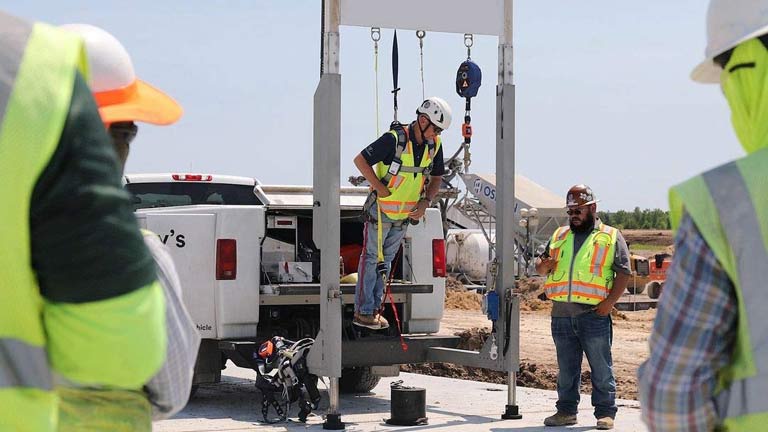
Our emotional intelligence expert and dynamic relationship explain how he feels that emotional intelligence plays an important role in daily work life. Based on his experience, he shares his deep understanding of the Art of Emotional Communication and loves working with people on becoming self-aware and working with their shadows. In his latest Emotional Intelligence Ted Talk, he talks about how one can be self-aware, be stress-free, manage their own emotions, and then build better relationships at work.
What is emotional intelligence?
Let us understand what emotional intelligence is after all. It is the management and use of your emotions effectively to relieve stress, then communicating effectively, and then building better and stronger work relationships with people around you at work. We are all human beings, and sometimes our emotions let us surpass our decision-making skills, letting us face the consequences later. Sometimes it ruins our important relationships, professionally and personally. Therefore, it becomes critical that every individual must become aware of their emotional behaviour or emotional side.
Why do we need emotional intelligence coaching?
Kapil, as an Emotional Intelligence London Coach, has explained how his coaching can help in becoming more responsive, and reflective, identifying deeper feeling spaces, developing a strong sense of personal values, being able to accept responsibility for his thoughts, emotions, and actions, having a better understanding of kindness and compassion, being more wiser, empathetic, and grounded. He explained that his sessions benefited the individuals in dealing with stress better without feeling burnout. They were able to create better boundaries for themselves and others, and, in the end, build better relationships with everyone around them.
Why do your human resources and heads of departments need to know about emotional intelligence?
He further breaks them into four segments:
- Self-Awareness: It is the core of emotional intelligence, being aware of emotions along with your strengths and weaknesses. Normally, we ignore this aspect, but it is crucial to understand as it will not only impact yours but also your team’s performance as well.
- Self-Management: Once you are aware of your emotions, it is the next step to understand and learn how to manage your emotions, to keep your impulses in check when you face any stressful situation. It becomes even more important to keep a positive outlook when we are under stress. as it can impact our decision-making skills.
- Social-Awareness: Once you master the art of self-awareness and self-management, it is equally crucial to understand the emotions of others who are working with you. Once you learn this art, it will teach you how to empathise with others. People who can read the room and understand others’ perspectives and feelings can communicate with them effectively and work towards the goal together efficiently.
- Relationship Management: As the title suggests, managing your relationships with the people you work with. Once you master all these segments of emotional intelligence, as a leader, you will be able to influence, coach, and mentor others around you. Or even as a team member, you will model respectful treatment for all of the teammates.
Why do Human Resources or the Heads of Departments need to know about Emotional Intelligence?
We all want our organisations to strive for excellence, we want our employees to be happy, and we want to maintain a healthy employee retention policy. So, emotional intelligence is the key factor that will help you to do so. If you, as a human resources professional or department head, include emotional intelligence as one of your performance criteria, you will be able to better understand your employees. You will be able to coach and mentor them effectively and efficiently, improving their performance at their tasks and hence giving the organisation better results.
With the help of only results, you might get a promotion, but if you are not aware and not in control of your emotions, then people around you will not respect you. Eventually, they will end up leaving your organisation for better ones. One of the great tools to check emotional intelligence is 360-degree performance appraisal, where not only the leadership or management fills the form but the people who are working with you or in your job role fill the form. That will show how you fill in that position and what areas you need to work on, even if it’s something you lack emotionally.
As you begin to control your emotions, learn about others’ feelings, and then build better relationships around you, the team’s performance improves automatically. The manager builds confidence in the team as they are happily and respectfully working together without bringing up any further issues or reasons not to work together anymore. You learn to make your management even more satisfied with your ability to keep everyone around you happy.
The leadership doesn’t have to deal with internal complaints anymore and they are able to work towards the organization’s new goals. When you work towards respectful and great relationships at work, people like to look up to you and get influenced by your ideas. You are also equally excited to bring in new ideas to improve work and team efforts to achieve the goals. Soon, you learn to influence them, coach them, and mentor them to newer ways of handling situations and achieving goals.
Final Thoughts
Emotional Intelligence is one of the most important aspects of bringing stability, respect, and great work relationships among team members. If implemented efficiently, then team members learn to respect each other, listen to each other, follow each other and understand each other, instead of running to managers and complaining about each other.
As they learn to empathise with each other, the dynamics within the office become friendlier and more trustworthy. They do not want to waste time gossiping or fighting with each other or bringing up petty issues with their managers. Now they are busy discussing future projects and how they will work together and divide the work effectively and finish work on time. Leaving management to worry and handle other issues at work.




